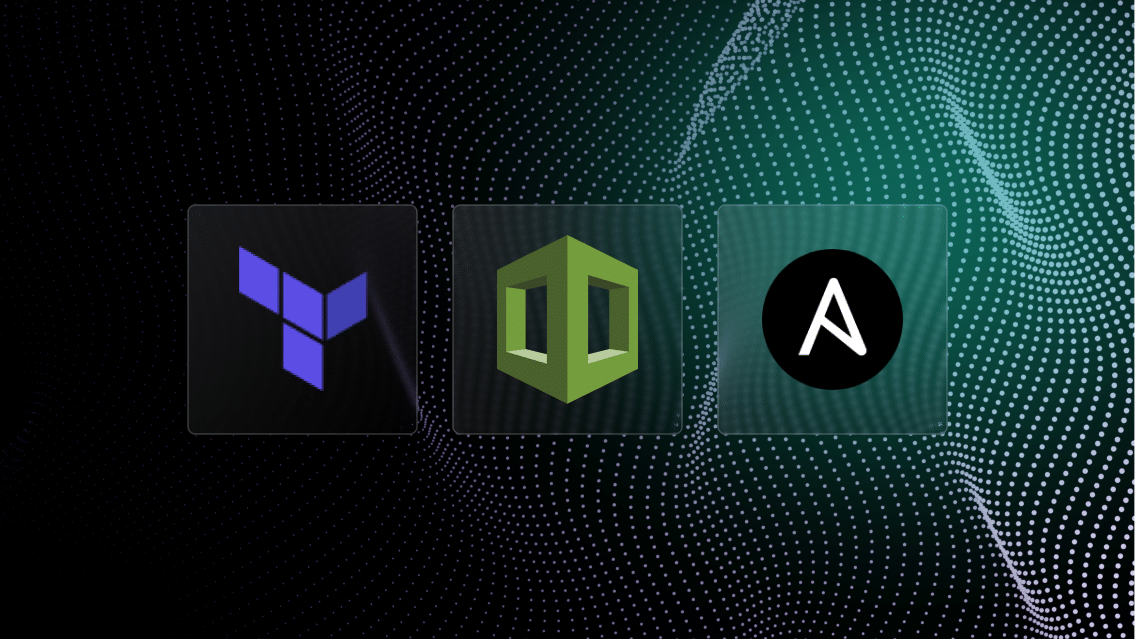In the rapidly evolving world of software development, DevOps automation has become essential for teams aiming to achieve seamless integration, continuous delivery, and efficient deployment processes.
When evaluating a DevOps tool, it’s critical to consider its ability to integrate with your existing toolchain and align with the skillset of your DevOps engineers.
Over the years, a diverse range of cutting-edge open source tools have emerged to empower development and operations teams in their pursuit streamlining project management and enhancing the effectiveness of the DevOps lifecycle.
In this article, we will help you identify the best DevOps tools for your explore the top DevOps automation tools that have benefited our users.
Benefits of DevOps Automation Tools
DevOps teams are often vastly outnumbered by the developers that they support. Some teams are tasked with supporting 10 to 20 software developers for every DevOps engineer on the team.
This is a result of the highly specialized, and hard-to-find, skillset that DevOps engineers bring to the table. And it often leads to a massive workload on the DevOps team.
Modern development teams rely on increasingly complex application infrastructure. Delivering and managing that infrastructure requires expertise in a variety of DevOps automation tools, including Git, infrastructure automation, Infrastructure as Code, and containerization technologies.
The DevOps toolchain , and the way it’s managed, has a significant impact on the efficiency and success of software development and operations teams by:
- Streamlining repetitive and time-consuming tasks and scaling operations efficiently so DevOps teams can focus on more strategic activities.
- Minimizing human error and ensuring consistency in software deployments and configurations across different environments.
- Facilitating seamless integration, testing, and deployment of code changes so DevOps teams can deliver updates and features more frequently and with confidence.
Best DevOps Tools 2024
DevOps automation tools are essential to accelerate development and mitigate risk across the infrastructure your teams rely on. Here are the most valuable DevOps automation tools that our customers use.
Terraform
Terraform is a powerful infrastructure-as-code tool that enables teams to define and manage cloud computing infrastructure in a declarative manner. With Terraform, developers can provision and manage cloud resources from various providers, including AWS, Azure, and Google Cloud Platform. The ability to codify infrastructure and leverage version control systems brings unprecedented control, scalability, and reproducibility to infrastructure management.
Our customers leverage Terraform modules to help DevOps move faster by automating the orchestration of reusable templates for application environments. This makes Terraform more scalable by allowing developers to deploy the environments they need via self-service, while allowing admins to standardize configurations and automate shut-down for idle resources deployed via Terraform.
Key features that help our customers simplify infrastructure provisioning include:
- Automating the generation of Terraform files based on resources in the user’s cloud accounts
- Abstracting out the complex details and security credentials to provision infrastructure resources via Terraform with a simplified self-service deployment tools and role-based access controls
- Using generative AI to orchestrate Terraform files and other infrastructure resources into reusable blueprints for application environments, which can also be provisioned via the self-service deployment tools
This approach also enhances the performance of DevOps testing tools by integrating test environment with a CICD tool. Through this process, the operations team can help to accelerate software delivery by ensuring the deployment of
Additional resources on automation and scalability for Terraform:
- Scaling Terraform infrastructure securely
- Automating operations for Terraform-defined infrastructure
- Detect Terraform configuration drift in live environments
- Demo: Terraform automation with Quali Torque
OpenTofu
OpenTofu is an open-source alternative to Terraform, designed to manage infrastructure as code (IaC). OpenTofu was created as a community-driven fork of Terraform in response to HashiCorp’s shift to a Business Source License (BSL), which restricts the use of Terraform in commercial software as a service (SaaS) platforms.
It allows users to define, provision, and manage cloud and on-premises resources using declarative configurations.
The goal of OpenTofu is to maintain the open-source nature of infrastructure management tools while fostering a collaborative ecosystem. It provides the same functionality and syntax familiar to Terraform users, allowing for a seamless transition. With a strong focus on openness and extensibility, OpenTofu ensures that users have full control over their infrastructure without concerns about licensing constraints.
Like Terraform, OpenTofu supports a wide range of cloud providers and services, such as AWS, Azure, Google Cloud, and Kubernetes, through its modular plugin system. It enables users to automate infrastructure provisioning, scaling, and management, making it easier to maintain infrastructure consistency across environments.
One of OpenTofu’s core principles is building a transparent, inclusive governance model that encourages contributions from a broad set of users and organizations. This approach aims to ensure that OpenTofu remains free, neutral, and vendor-agnostic, serving as a trusted tool for the DevOps community for years to come.
Our users leverage Quali Torque to scale and accelerate operations with OpenTofu by:
- Automatically generating OpenTofu files from the cloud resources in the user’s AWS and Azure cloud accounts: This makes it easier to reuse the state of any cloud resource deployed via OpenTofu, creating a path to building an inventory of reusable infrastructure resources that can be deployed via Torque’s native self-service catalog and built into reusable Environment as Code templates.
- Generating reusable blueprints for application environments that leverage OpenTofu alongside other IaC and infrastructure resources: This eliminates redundant orchestration and provisioning of environments supporting the DevOps lifecycle while enabling DevOps engineers to scale their OpenTofu resources and automates testing, development, and other DevOps processes easily.
Kubernetes
Kubernetes has emerged as the de facto container orchestration platform, providing automated deployment, scaling, and management of containerized applications. With Kubernetes, teams can efficiently manage complex microservices architectures, achieve high availability, and leverage automatic scaling based on workload demands. Kubernetes also offers excellent support for infrastructure-as-code practices and integrates well with other DevOps tools, like Terraform, Jenkins, and Ansible.
Quali Torque helps to scale Kubernetes resources via secure self-service for developers and governed deployments via CI/CD pipelines.
Learn more:
- Simplify deployment of application environments built on Kubernetes
- Identify and resolve Kubernetes configuration drift in live environments
- Automate orchestration of application environments across multiple Kubernetes resources
Helm
Helm is a package manager for Kubernetes, designed to simplify and streamline the deployment and management of applications within Kubernetes clusters. It provides an efficient way to package, share, and deploy applications, along with their associated configurations and dependencies, in a consistent and repeatable manner.
Helm delivers pre-configured templates that encapsulate Kubernetes manifests and application configurations, known as Charts. This makes it easy to define and version the entire application stack. The Helm client, on the other hand, is the command-line tool that interacts with the Kubernetes API server, enabling developers and DevOps teams to install, upgrade, rollback, and manage applications effortlessly.
DevOps teams have embraced Helm to enable their teams to share and distribute their application configurations as versioned Helm charts. This fosters a culture of code-sharing and accelerates the development process.
Learn more about managing and automating Helm Charts at scale with Quali Torque .
GitHub, GitLab, & BitBucket
DevOps teams use Git repositories like GitHub, GitLab, and Bitbucket for version control, automation capabilities, collaboration features, and support for integrations to improve efficiency and productivity in the software development lifecycle.
Git repositories allow DevOps teams to track changes to their codebase over time. This enables seamless collaboration, easy code reviews, and the ability to revert to previous states if needed. They also facilitate team collaboration by providing a centralized location for code storage and easy code-sharing mechanisms, making it simple to work together on projects.
These platforms offer built-in CI/CD capabilities, automating the build, test, and deployment processes. This integration streamlines the development lifecycle, ensuring code changes are thoroughly tested before reaching production.
Our customers leverage IaC modules defined in Git to automatically orchestrate reusable definitions of application environments, providing a layer of control between Git and CI/CD.
This enables DevOps teams to:
- Democratize access to cloud infrastructure while encrypting account credentials and other keys,
- Set policies to prohibit deployments of over-sized or otherwise unapproved cloud configurations via CI/CD pipelines
- Automate shutdown of cloud VMs supporting ephemeral environments to prevent wasted budget due to zombie infrastructure
- Track costs based on real-time deployments to provide visibility into costs by cloud, team, or application
Learn more about how Quali Torque supports infrastructure defined in Git .
Ansible
Ansible, an open-source automation platform, simplifies IT infrastructure automation and configuration management. With its agentless architecture, Ansible has become popular among DevOps teams for its straightforward method of automating tasks across a wide range of systems. Ansible Playbooks allow users to define automation workflows in a human-readable language, reducing complexity and enhancing collaboration between developers and operations teams.
Quali Torque will automatically import Ansible playbooks into a reusable YAML defining a complete application environment. This helps to scale Ansible playbooks by democratizing self-service access for developers to execute the plan to deploy a testing, staging, or production environment on-demand.
Learn more about Quali Torque’s support for Ansible playbooks .
Quali Torque
Quali Torque orchestrates and deploys application environments directly from the Terraform, Ansible, and Kubernetes resources defined in Git. By creating YAML files defining all the inputs, dependencies, and outputs to support a unique environment, Torque eliminates the orchestration needed to deliver those environments and allows DevOps teams to distributed governed access for the developers who need them.
For a brief overview of Quali Torque, check out this video:
DevOps teams embrace Torque to enforce governance standards over cloud configurations and operations. With support for Terraform-defined policies, Quali Torque will deny the deployment of any cloud resources that violate those policies (e.g. unapproved cloud technologies or environments configured to exceed custom cost thresholds). Automated deployment and decommissioning also enable DevOps teams to ensure their teams have access to cloud infrastructure when they need it while preventing it from running while it should.
Visibility into deployments via Torque also provides real-time cost data with insight into who deployed which environment. This data enables DevOps teams to explore anomalies, update configurations, and make more informed decisions about cloud governance standards across the board.
With integrations to support CI/CD platforms, CLI, IDE, and Internal Developer Platforms, Quali Torque helps to establish a control layer over all infrastructure configurations and deployments without centralizing any provisioning or management processes.
Quali CloudShell
Quali CloudShell is a popular infrastructure automation platform for teams that rely on hybrid cloud resources.
By defining the configuration of on-premises infrastructure components alongside those deployed via private cloud and public cloud tools, Quali CloudShell automates provisioning processes that can take days or weeks in some cases. Network engineering, IT operations, and DevOps teams leverage CloudShell to define complex infrastructure configurations and provide the developers, testers, and other teams they support with continuous environments.
Learn more about Quali CloudShell.




